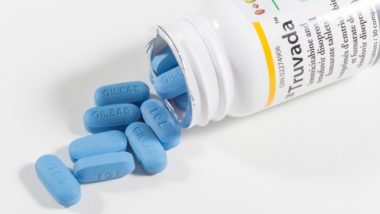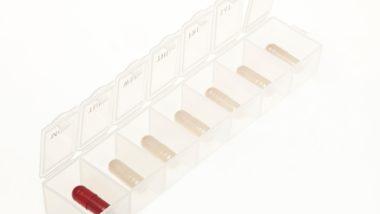Top Class Actions’s website and social media posts use affiliate links. If you make a purchase using such links, we may receive a commission, but it will not result in any additional charges to you. Please review our Affiliate Link Disclosure for more information.

Law firms are currently investigating the matter for a class-action lawsuit against Gilead in California.
What is Tenofovir Disoproxil Fumarate?
More commonly known as tenofovir or TDF, and sold mainly under the brand name Viread, this medication is indicated for chronic hepatitis B as well as for the prevention and treatment of HIV and AIDS. HIV.gov classifies the medication as an antiretroviral. These medications bind to the virus that causes HIV, disabling its replication process while preventing it from entering human cells
What is TDF Used For?
Tenofovir disoproxil is used primarily for the treatment of chronic hepatitis B and for the prevention and treatment of HIV and AIDS. In some cases, it can be used prophylactically, when a person has suffered a needlestick injury or has been the victim of sexual assault. It is usually prescribed in combination with other antiretroviral medications such as emtricitabine (Emtriva) or efavirenz (Sustiva). Throughout most of the world, this treatment combination averages about $15 per month, however, U.S. patients, or their insurers, are charged more than $200.
What Are the Side Effects of TDF?
In 2015, the World Health Organization placed TDF on its Model List of Essential Medicines. It is generally considered safe, and there are no known contraindications. Some of the more common side effects are:
- Nausea
- Skin rash
- Headache
- Generalized pain and weakness
- Depression
In some cases, patients taking tenofovir disoproxil suffer from more serious side effects, including lactic acidosis and hepatomegaly (enlarged liver).
An earlier version of the drug, developed in the 1980s, put patients at risk for kidney and bone disease. Gilead has been accused of developing a less toxic version of tenofovir disoproxil in 2000, but shelving it while concealing the risks of the old formulation.
Why is There a Tenofovir Disoproxil Lawsuit?
According to a lawsuit filed in Los Angeles, when TDF received approval from the Federal Drug Administration (FDA) in October 2001, Gilead scientists were aware that patients would require very large doses in order to experience its therapeutic benefits — putting them at risk for bone and kidney damage. The plaintiffs claim that information about those risks was not included on tenofovir’s packaging.
The suit says that years before the FDA approved TDF, Gilead scientists had begun working to reduce its adverse effects. Six months before the drug’s approval, the scientists published research on a different chemical version of the medication called tenofovir alafenamide fumarate, or TAF.
A study purportedly showed that TAF to be 1,000 times more effective than the older version (TDF). Plaintiffs charge that Gilead paid physicians to prescribe TAF to patients in a limited number of clinical trials, with excellent results, but did not publish the results for years so that the drugmaker could earn billions continuing to sell the older version.
In 2004, Gilead announced that for “business reasons,” it was discontinuing research on TAF, and the company continued aggressively marketing TDF, the lawsuit charges.
Plaintiffs claim Gilead did this to make as much profit as possible on TDF before releasing the improved TAF.
What Other Tenofovir Disoproxil Fumarate Lawsuits Have Been Filed
According to Gilead’s second-quarter report for 2019, there are hundreds of Truvada lawsuits pending in state and federal courts, a substantial number of which have been filed in California and have been consolidated into multi-district litigation. A number of individual complaints have also been filed in Delaware and Louisiana. In addition, Gilead faces legal action from the federal government on behalf of the Department of Health and Human Services over an alleged patent infringement involving Truvada and Descovy, a medication used for reducing the risk of HIV in individuals who have been exposed to the virus. Descovy was approved by the FDA in Oct. 2019.
Recently, New York University submitted a petition to the U.S. Patent & Trademark Office, asking it to review Gilead’s actions in delaying the development of TAF and its attempts to extend its patents on newer medications. The petition claims that allowing Gilead to do so would only “reward” its alleged practice of shelving newer, potentially safer products at patients’ expense. This petition reflects the concerns of patients who have filed lawsuits against Gilead for this very reason.














